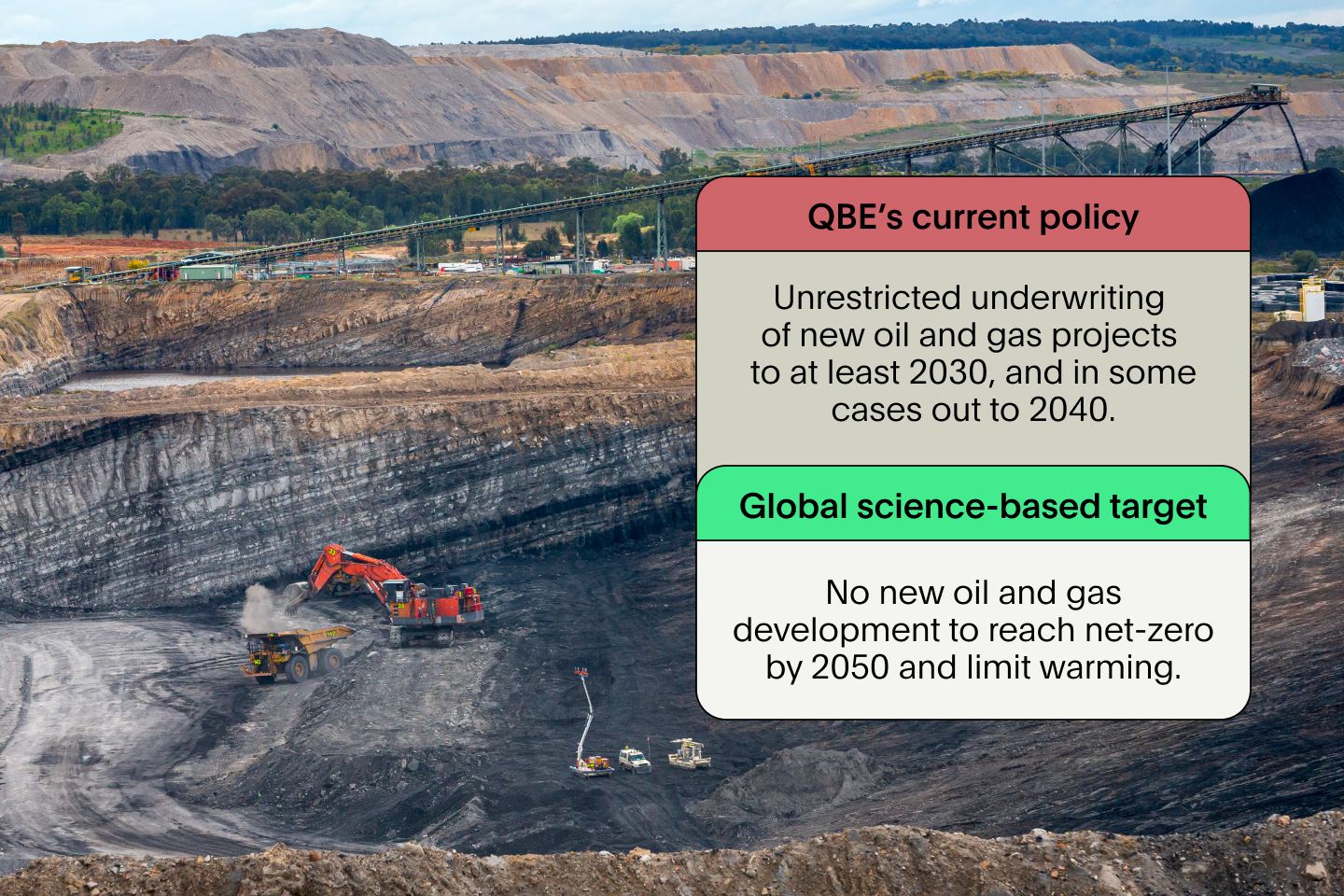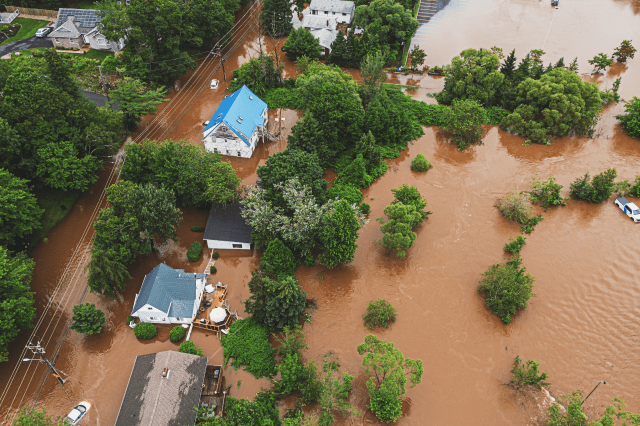We're asking QBE to do better
- Our strategic stewardship efforts with QBE over the years have led us to be more vocal about our views
- We believe the policy enabling QBE to underwrite fossil fuel expansion is an example of self-inflicting risk
- With 30+ years of forward-looking climate modelling, QBE could be helping communities avoid the worst effects of climate change
We have a long history investing in insurer QBE, and a long history of ethical and investment engagement with the company.
We are going public with our concerns about QBE now because our mostly behind-closed-door discussions with the company aren’t leading towards the outcomes we want.
We believe the company is inviting too much risk into its business by not acknowledging the potential effects that rising insurance premiums and uninsurability – brought about by climate change – have on future longer-term revenues. That’s not good for shareholders like us, not to mention the members and investors who entrust us with their hard-earned savings.
We’re also concerned QBE is facilitating fossil fuel expansion, something that’s out of step with industry peers and science-based guidance to limit warming and address the worsening climate crisis. That’s not good for the planet and people who are doing what they can to limit their own emissions to keep climate change in check.
Already this year we have written a private letter and publicly questioned QBE’s leaders during the company’s May 9 Annual General Meeting. We haven’t been satisfied with the responses, so we’re getting more vocal about the change we want to see.
Why are we getting vocal?
When our position as an investor and as a shareholder doesn’t give us the leverage to get action, then we use our voice in the media, in partnership with other investors, and through our highly engaged super member base to force companies to make changes.
We are guided by our 38-year-old Ethical Charter, and we have a Theory of Change that guides us to apply pressure to companies to create a better world for people, planet and animals.
This kind of engagement and stewardship is something that currently sets us apart from our peers, but if more super funds and investors start thinking this way, we expect money will genuinely start becoming a force for good.

We want to see QBE become a leader by sharing the outcomes of its modelling of climate risk, to help get our communities prepared for the more frequent and deadly climate related disasters climate scientists are predicting.
What is our specific concern with QBE's business model?
QBE has significant exposure to physical climate risk through its property and agriculture underwriting book – just under 50% of total gross written premiums.
We don’t believe QBE is disclosing the extent of the future impact of climate change on their earnings. It’s difficult to determine exactly what this impact might be because the company is not sharing insights from its own 30+ years forward-looking climate modelling.
QBE has already exited property portfolios in North America and Australia and is continuing to exit markets which could impact its future earnings. We also note there are limitations to how much the company can increase premiums to mitigate escalating climate risks given affordability constraints of its customers.
In a cost of living crisis, insurance premiums stand out as the fastest growing household expense.
What about QBE's fossil fuel expansion?
QBE’s policy allows the company to underwrite new oil and gas new projects without any restrictions to at least 2030 and in some cases to 2040. This is out of step with credible climate risk scenarios, lags its peers and is inconsistent with its own stated commitment to a net-zero emissions economy aligned with warming to 1.5 degrees by 2100.
We also think insurers like QBE could be doing more to help mitigate physical climate risk by leveraging their modelling and considerable influence with investors, politicians and within the business community by developing strategic, dedicated lobbying efforts for sensible climate policy.

So, what's next?
Cutting off financing for fossil fuel expansion is one of six strategic stewardship pillars, and we are continually looking for ways to hold banks and insurance companies to account. We have documented our efforts over the last decade in our latest Stewardship report.
As part of this strategic focus, we will continue to apply pressure to QBE publicly until the company changes its Environmental and Social Risk Framework to align with credible climate risk scenarios.
We are also keen to hear from the company specifically about which projects it is underwriting to better understand what exposure it has to the declining fossil fuel industry.
We also want to see QBE become a leader by sharing the outcomes of its modelling of climate risk, to not only help get our communities prepared for the more frequent and deadly climate related disasters experts have predicted, but also to help encourage stronger government and industry action to help avoid the worst effects of climate change.



